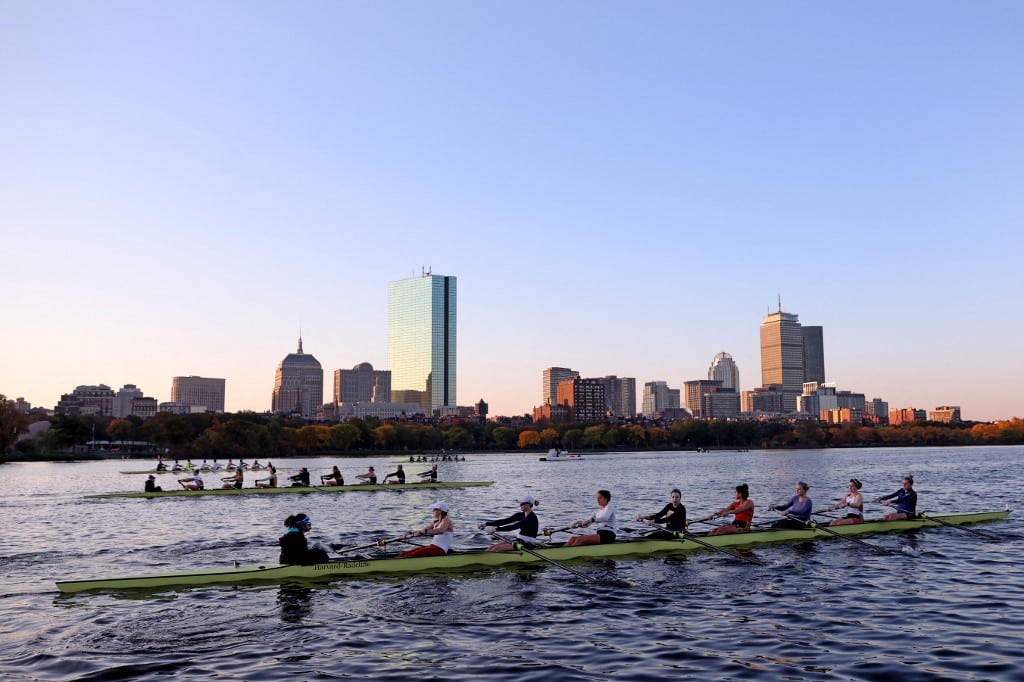
Earlier this month the researchers at the University of Massachusetts at Amherst presented a study to the Massachusetts Gaming Commission which revealed the presence of casinos did not trigger an increase in problem gambling in the state.
Unexpected Results
Many expected that the introduction of casino gambling in Massachusetts would automatically lead to an increase in problem gambling. However, those were not the findings after comparing a study conducted before and after the introduction of casinos beginning in 2015 with the opening of Plainridge Park Casino followed by the MGM Springfield in 2018, and then the 2019 arrival of the Encore Boston Harbor.
In fact, the results of the study showed the opposite as 2% of Massachusetts residents over the age of 18 surveyed reported a problem gambling issue in 2013 compared to 1.4% in 2021, after the opening of all three casinos in the Bay State. Thus, between 54,000 and 114,000 Massachusetts residents have a gambling problem to one degree or another.
Changing Tides
In another surprising result, a survey conducted in 2013-2014, before casinos came to Massachusetts, revealed that 73.1% of all Massachusetts residents who were surveyed participated in some form of gambling. And of that percentage, 21.5% of those surveyed reported they had visited either one or both of the two Connecticut tribal casinos, Foxwoods, and Mohegan Sun, and/or had visited casinos in other states.
However, when the same survey was conducted in 2021, the study showed that participation in gambling over the past year had dropped to 60.2%. While those findings would be antithetical to what many believe would have happened after three casino openings, it was not entirely unforeseen to Rachel Volberg, the lead investigator on UMass’s research team that created the Social and Economic Impacts of Gambling in Massachusetts study.
“We hypothesized that because of the clear exposure to casinos in Connecticut, we might not see the increase in problem gambling that often happens in the wake of the introduction of a new form of gambling,” says Volberg, also a research professor of epidemiology in the School of Public Health and Health Sciences. “And it was nice to see our hypothesis confirmed.”
Other Findings of Note
There were several other findings in the study funded by the Massachusetts Gaming Commission and one of them was quite obvious. Those patronizing out-of-state casinos over the past year numbered 21.5% in the pre-casino study back in 2013-2014 but in the 2021 study, it was not surprising to find that number had dipped sharply to 10.2%.
With the advent of the three casinos coupled with online sports betting that launched in March 2023, there are many more gambling options in the Bay State than just the lottery and horse racing that used to be the only gaming in town.
Therefore, the significant jump from 15.6% in 2013 who said gambling is too widely available to 67.5% of those surveyed in 2021 was anticipated, although the margin may have been wider than expected.
Positive Outlooks and Concerns
Respondents were also asked their opinions on the positives and negatives of casinos in Massachusetts. The positives were increased employment (37%), retaining money that was going to casinos out of state (17.3%) and increased revenue for the state in terms of the taxes on the casino revenues (14.3%).
As for the negatives, it was predictable that increased gambling addiction was cited as the No. 1 negative by 45.1% of those surveyed followed by increased traffic congestion (18.8%) and increased crime (10.7%).
Overall, 29.1% of those respondents found casinos beneficial while 25.1% found them harmful.






